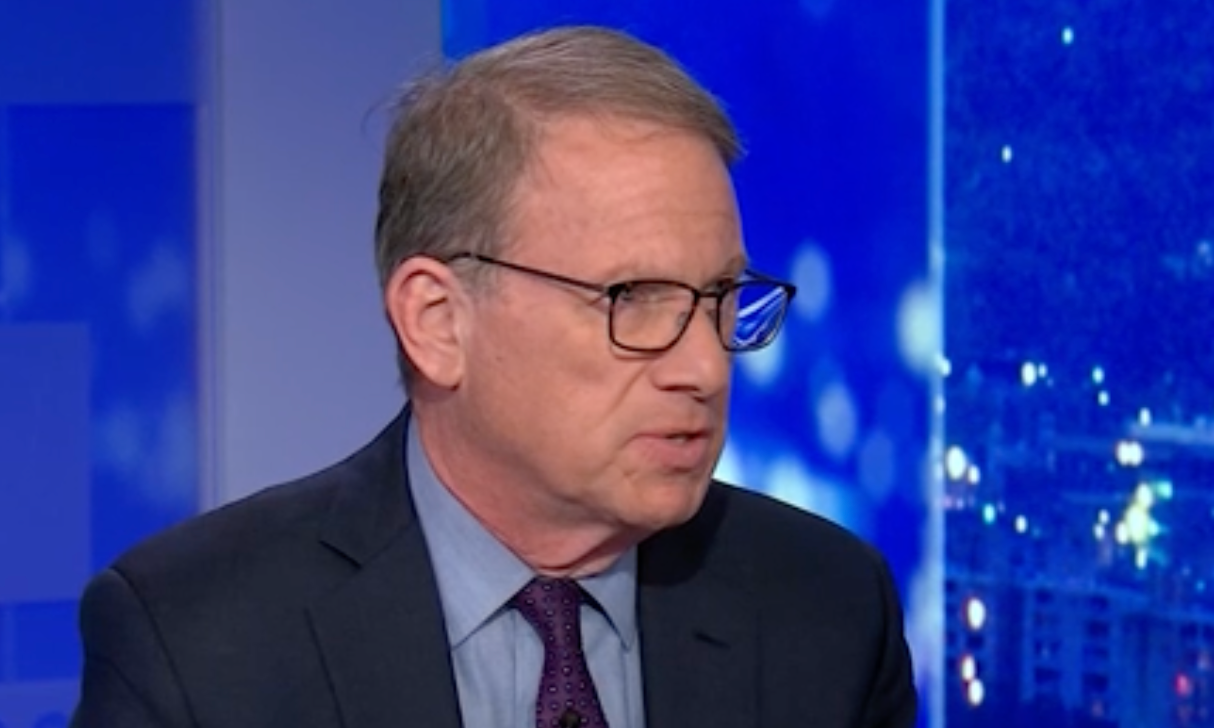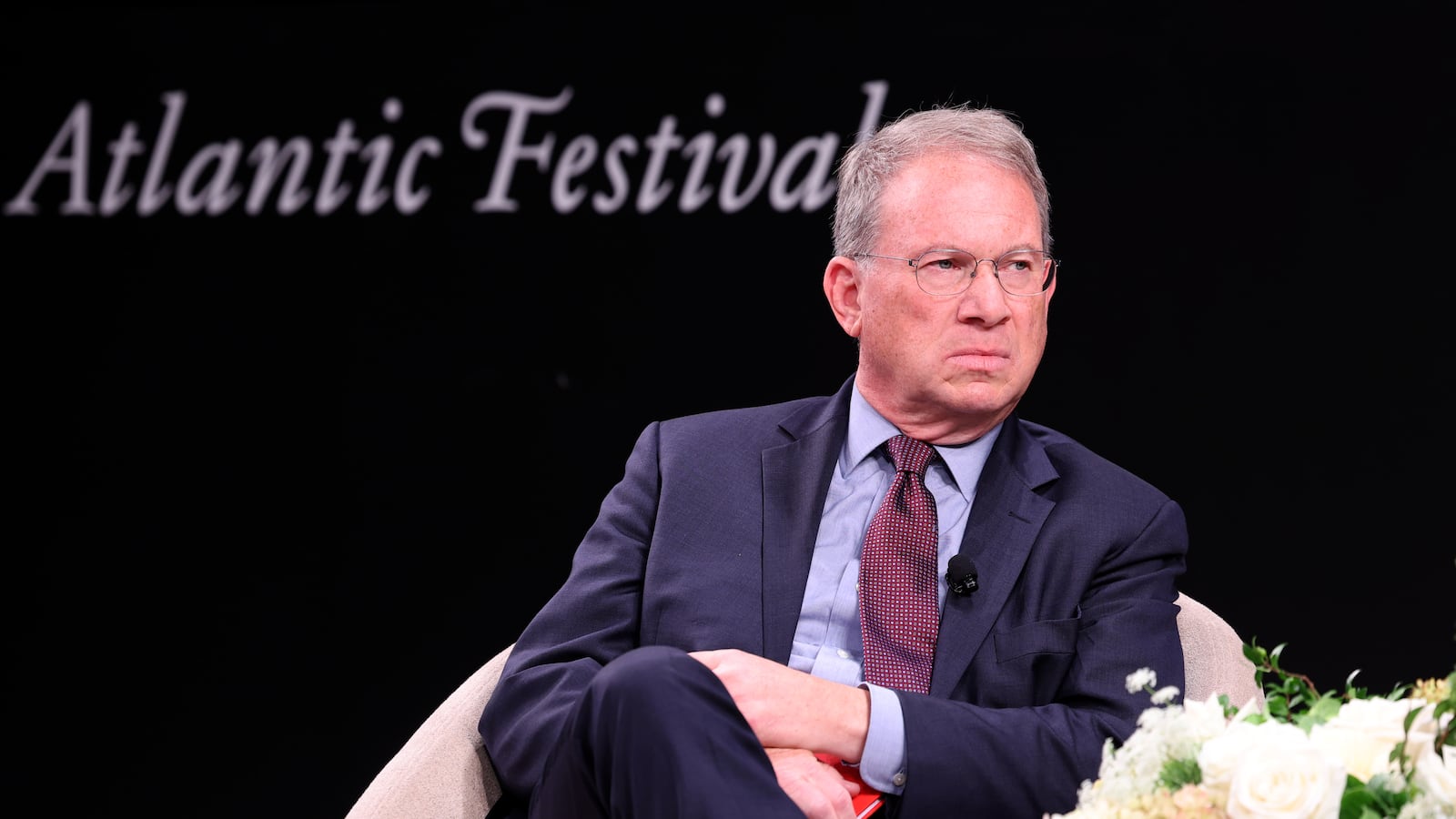
In the shadow of the Trump administration’s final days, a controversy continues to simmer—a controversy that raises fundamental questions about the handling of sensitive national security information at the highest levels of government. This week, The Atlantic’s editor-in-chief, Jeffrey Goldberg, released additional messages from a Signal chat that included top Trump administration officials, which had previously been the subject of heated debate and scrutiny.
These newly revealed communications offer an even more disturbing glimpse into the careless handling of information that could have far-reaching consequences for both national security and the public’s trust in government.
The Signal chat, which was originally created by National Security Adviser Mike Waltz, included high-ranking officials such as Defense Secretary Pete Hegseth, CIA Director John Ratcliffe, Director of National Intelligence Tulsi Gabbard, and Vice President Vance. It was in this group chat that discussions about an imminent U.S. military strike on Houthi rebels in Yemen took place, and it was within this context that Goldberg—by no fault of his own—was inadvertently added to the conversation.
The release of these additional messages has reignited the conversation about the mishandling of classified information. What began as a seemingly small technical error now appears to be part of a larger pattern of carelessness, with far-reaching consequences.
The new details released by Goldberg show that this wasn’t just a casual conversation about military strategy, but one that contained real-time updates and sensitive intelligence that, in the wrong hands, could have put American lives at risk.
The latest batch of messages, released by Goldberg in an article published Wednesday morning, paint a clearer picture of the scope of the information shared. In one message, Defense Secretary Pete Hegseth provides specific details about the timing of the strike on Houthi targets in Yemen.
He writes: “TIME NOW (1144et): Weather is FAVORABLE. Just CONFIRMED w/CENTCOM we are a GO for mission launch.”
Hegseth continues, providing specific timing for the strike: “F-18s launching in 30 minutes, then the strike will commence one hour later.”
The specificity of these details is alarming. In what world is it acceptable for such critical, real-time military information to be shared in a group chat on a commercial, unsecured app like Signal? Whether these details were classified or not, their potential impact on national security is undeniable. If this information had fallen into the wrong hands—whether through a hostile actor or simply through careless oversight—the consequences could have been disastrous.
One of the most contentious aspects of this ongoing scandal is the debate over whether any classified materials were actually shared in the Signal group chat. Goldberg, in his latest reporting, pushes back against the Trump administration’s claim that no classified information was involved.
“If this text had been received by someone hostile to American interests—or someone merely indiscreet, and with access to social media—the Houthis would have had time to prepare for what was meant to be a surprise attack on their strongholds,” Goldberg wrote. “The consequences for American pilots could have been catastrophic.”
Despite the gravity of Goldberg’s argument, the White House and Trump’s defense team have continued to downplay the significance of the messages, insisting that no “war plans” or classified material were shared in the chat. White House Press Secretary Karoline Leavitt further added that The Atlantic had conceded that the messages were not “war plans,” framing the entire controversy as a hoax.
However, Goldberg’s reporting, combined with the release of more detailed chat messages, casts doubt on these reassurances. While the White House might argue semantics, the issue remains clear: sensitive military operations were discussed in a group chat, and the information could have easily been exploited if it had reached the wrong people.
In the new messages, Hegseth and other officials share more real-time intelligence, including details about the conditions at the attack site in Yemen. Waltz posts messages detailing the aftermath of the first strike, which include “Building collapsed. Had multiple positive ID.”
He continues, noting that “the first target – their top missile guy – we had positive ID of him walking into his girlfriend’s building and it’s now collapsed.”
This is more than just a military update; it’s an operation report that includes intelligence that should have only been shared through secure channels, not an unsecured chat with someone who, while a journalist, had no clearance to view these details. Such real-time intelligence is what governments around the world go to great lengths to protect.
To see it shared casually, even if unintentionally, should raise alarms about how securely sensitive information is handled.
As the fallout from these revelations continues to unfold, the Trump administration’s defense team has been forced into a corner. As expected, members of the administration have been quick to defend their actions, with National Security Adviser Mike Waltz offering a somewhat bizarre explanation of how Goldberg was added to the chat.
“I didn’t see this loser in the group. It looked like someone else,” Waltz said in an interview with Fox News.
Waltz’s flippant response to a matter as serious as a national security breach has only compounded the controversy. The idea that such an important discussion about military operations was handled in such a careless and disorganized way raises serious questions about the administration’s commitment to securing sensitive information.
Even more troubling is the fact that Waltz and other officials, such as CIA Director Ratcliffe and Director of National Intelligence Gabbard, have continued to downplay the significance of the information shared. “There was no classified material that was shared in that Signal group,” Gabbard told the Senate Intelligence Committee during a hearing on Tuesday.
This continued insistence on minimizing the issue only serves to further erode trust in the administration’s handling of national security. As Sununu and others have pointed out, owning up to the mistake, acknowledging the seriousness of the leak, and offering a transparent response would have gone a long way toward restoring some semblance of credibility.
As the story unfolds, calls for accountability are growing louder. Senator Mark Warner, the top Democrat on the Senate Intelligence Committee, tweeted, “When the stakes are this high, incompetence is not an option. Pete Hegseth should resign. Mike Waltz should resign.” Warner’s comments reflect a growing frustration with the way this scandal has been handled.
The issue of accountability extends beyond the individuals involved in the leak to the broader question of how the Trump administration has treated sensitive information throughout its tenure. From the mishandling of classified materials at Mar-a-Lago to the failed response to the January 6th insurrection, this incident serves as yet another example of how the Trump administration has failed to take seriously its responsibility to safeguard national security.
As the investigation into the Signal chat continues, Congress will likely demand more answers. Gabbard and Ratcliffe are scheduled to testify before the House Intelligence Committee on Wednesday, where they will face tough questions about the information shared in the chat and the broader implications for national security.
Meanwhile, the American Oversight group has filed a lawsuit against the Trump administration, demanding answers about the use of Signal as a platform for high-level government communications. The public is left with lingering questions: How did this happen? Why wasn’t the information better protected? And, perhaps most importantly, what steps will be taken to prevent such breaches in the future?
This scandal is far from over. As more details about the Signal chat emerge, the implications for the Trump administration—and for the nation as a whole—continue to unfold.
Whether the administration will take responsibility for the breach, or continue to deflect and downplay the seriousness of the leak, remains to be seen. But one thing is clear: this episode raises serious questions about the Trump administration’s commitment to protecting sensitive information and safeguarding national security.
In the end, what is most troubling about this situation is not just the leak itself, but the response—or lack thereof—by those responsible. The failure to own up to the mistake and demonstrate transparency may be the final straw for many Americans who have long grown disillusioned with the administration’s approach to governance.
As we move forward, the consequences of this incident will likely reverberate in ways that go far beyond a mere breach of protocol.






